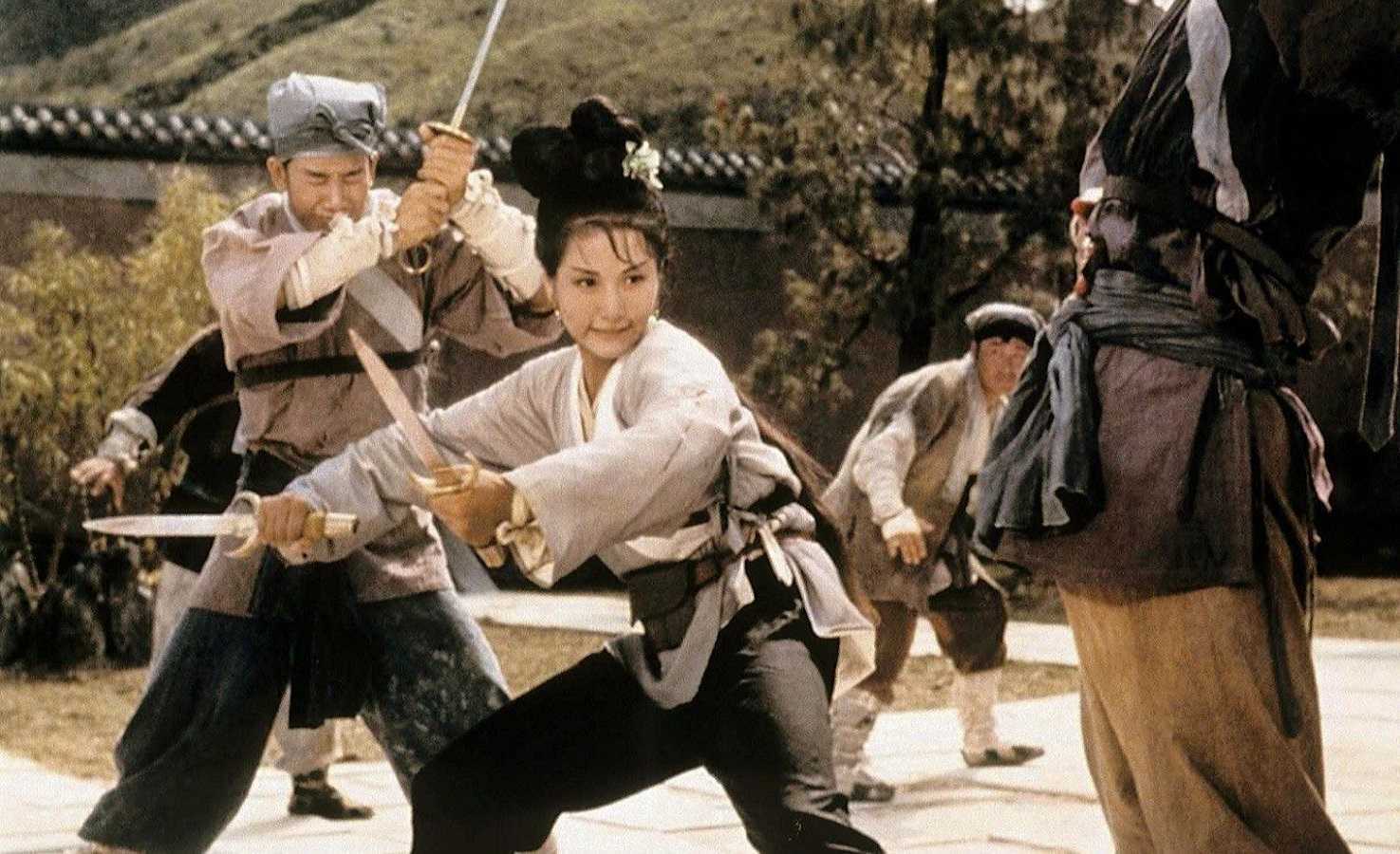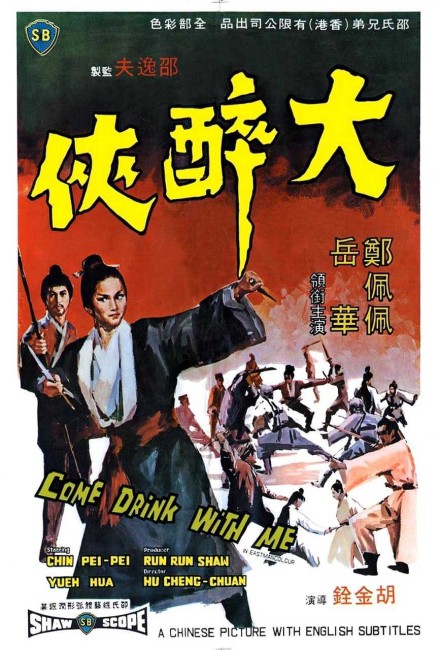(Da Zui Xia)
Hong Kong. 1966.
Crew
Director – King Hu, Screenplay – King Chuan & Ye Yang, Producer – Run Run Shaw, Photography – Ho Lan-Shan, Music – Chow Lan-Ping, Art Direction – Johnson Tsao. Production Company – Shaw Brothers.
Cast
Pei-Pei Ching (Golden Swallow), Yueh Hua (Drunken Cat/Fan Ta Pei), Chen Hung Lieh (Jade Faced Tiger)
Plot
Bandits take the imperial envoy Chang hostage in order to demand the return of their leader. The renowned fighter Golden Swallow, who claims to be Chang’s brother (although is really a girl), arrives to secure his release. Golden Swallow takes on the bandits in their hideout at a Buddhist temple, massacring dozens, before she is wounded by a poison dart. She is given refuge by Drunken Cat, a drunk that she met at the inn who reveals he is really a martial arts master. The two combine forces, she to secure Chang’s release, while Drunken Cat sets out to confront the Abbot Liao Kung who betrayed the ways of his order and killed his master and is determined to obtain the abbot’s sacred staff that Drunken Cat holds.
Come Drink With Me is an early Hong Kong swordsman film. It was revived and re-released in the early 2000s where it was promoted as one of the films that inspired Crouching Tiger, Hidden Dragon (2000). This is somewhat misleading in that it is only one among a whole line of films that became part of Hong Kong’s Wu Xia tradition involving chivalric swordplay, martial arts and fantasy elements. Secondly, this is misleading in that, while Come Drink With Me is definitely a swordsman film, the actual flying swordsman and fantasy element is relatively minor – one brief shot where the heroine runs up a wall, another where Yueh Hua manifests power blasts from his hands and certainly some moves and acrobatics that are if not fantastical at least highly improbable.
Come Drink With Me was one of a whole host of martial arts and Wu Xia films made by Hong Kong’s Shaw Brothers, who went onto essentially create the kung fu genre of the 1970s. Director King Hu (1932-97) went onto various other films in the genre including Dragon Gate Inn (1966), A Touch of Zen (1969), The Fate of Lee Khan (1973), The Valiant Ones (1974), Legend of the Mountain (1979), The Invincible Ones (1982) and most famously Swordsman (1990), which started off the modern entirely fantastique flying swordsman cycle, and Painted Skin (1992).
Although it is much more restrained in terms of what we regard as the Wu Xia style today, particularly in terms of pace, Come Drink With Me has a wonderful energy and vigour of its own. A genuine standout is the scene in the inn where Pei-Pei Ching takes on about a dozen men in dazzling combat, a scene that almost certainly lent inspiration to the similar scene in Crouching Tiger where Zhang Ziyi takes on about a hundred men in an inn. Equally good is the set piece in the middle of the film with Pei-Pei Ching taking on another dozen or so fighters in the temple courtyard. King Hu stages the action with considerable élan and even if the pacing is a whole lot slower than we are used to these days, Come Drink With Me easily compares with the dazzle of modern Wu Xia.

What is also notable, at least for the time the film was made, is that King Hu gets the women into the act. Indeed, the film is largely stolen by nineteen-year-old Pei-Pei Ching, whom Hu recruited from a ballet company. Both in her litheness of movement and the intensity of purpose she projects, Pei-Pei commands the entire film. She went onto a career in martial arts cinema, including films like The Thundering Sword (1967), Golden Swallow (1968), The Golden Sword (1969), Attack of the Kung Fu Girls (1973), The Legend of Black Mask (2001) and indeed even played Jade Fox in Crouching Tiger. Yueh Hua also provides amusing support. Both of their characters – the woman posing as a man and the drunken martial artist later became staple figures in Hong Kong martial arts cinema, the latter most notably giving birth to Jackie Chan’s Drunken Master series. The character of Golden Swallow appeared in other films and more recently was incarnated/homaged in The Forbidden Kingdom (2008).
The main complaint about the film is the plot, which takes a distinct backseat to the action (as is always the case in Hong Kong martial arts cinema). The most glaring hole is the bit about Pei-Pei Ching disguising herself as a man, a disguise that fools none of the watching audience and that eventually turns out to have no relevance to the story. Most glaringly the disguise is dropped about halfway and people start referring to her as a woman, yet nobody appears in any way surprised about this. The structure of the film is haphazard as well – Pei-Pei’s Golden Swallow is introduced as the main character, yet about halfway through drops out of the story (to only reappear right at the end), while Drunken Cat and his past, which seems like a whole other story, takes over.
Trailer here


